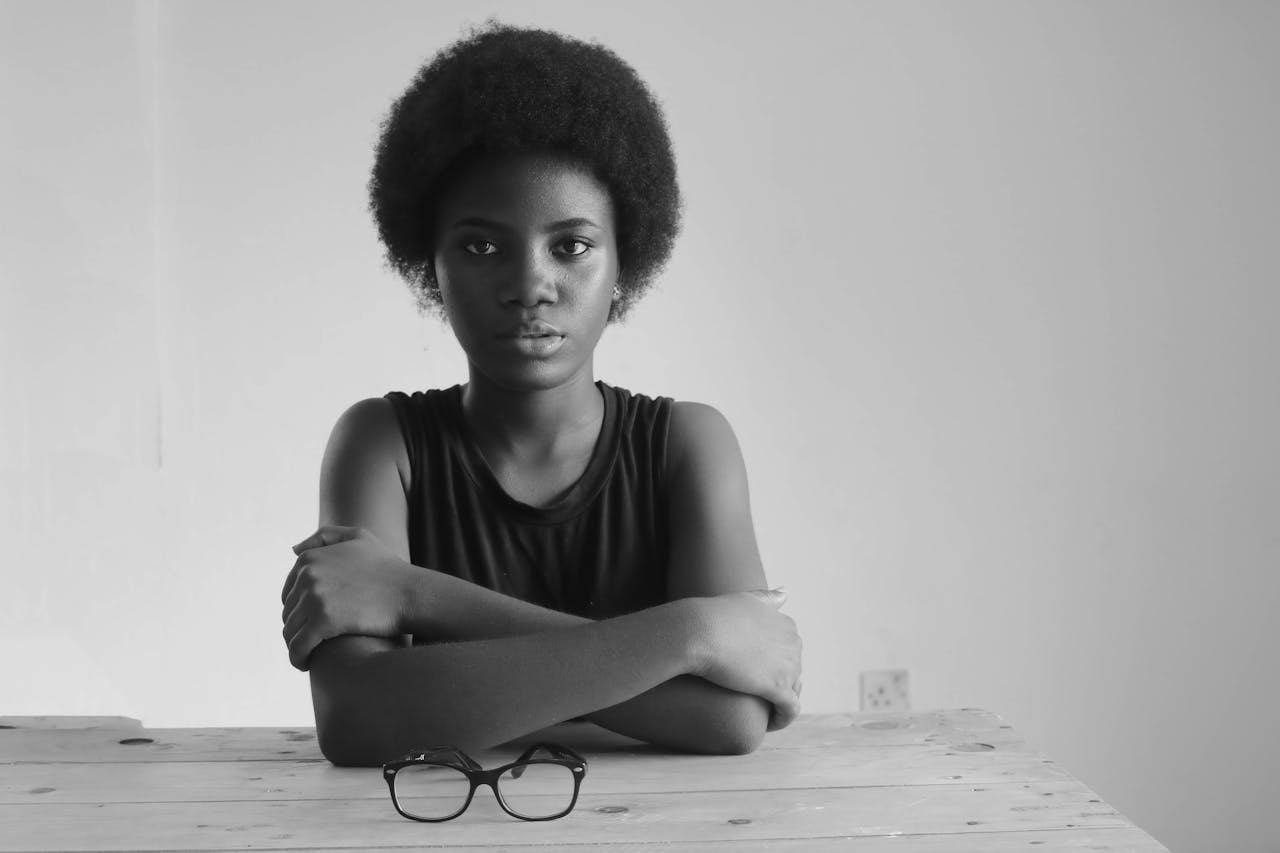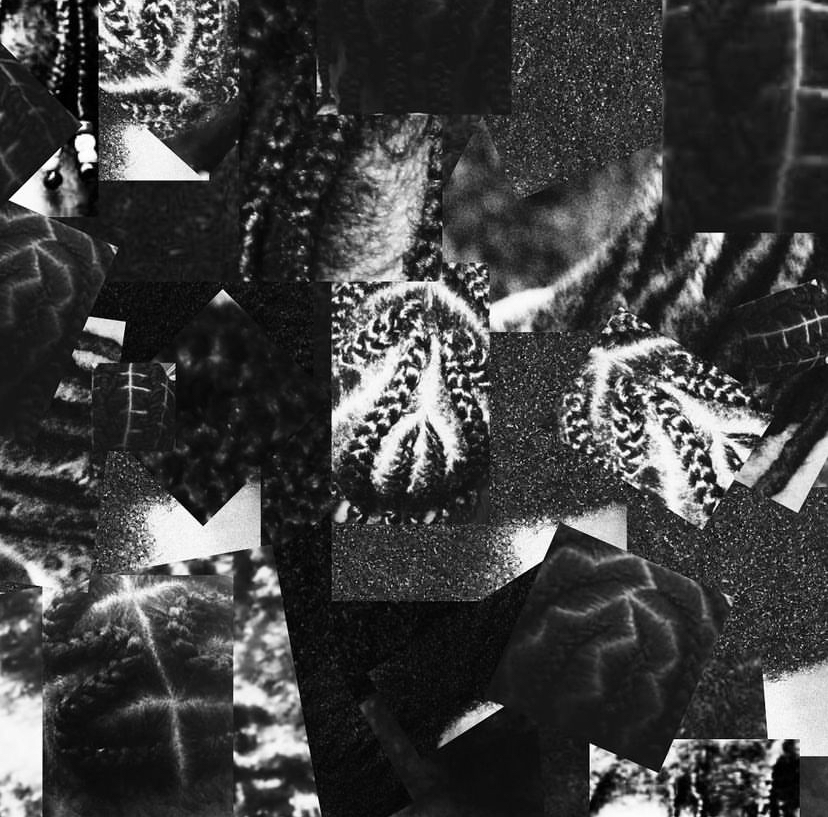When Christian missionaries established schools in different parts of East Africa, they constructed the narrative that Black hair was unsightly, ungodly and untameable. In many postcolonial schools this still seems to be the norm.
My love-hate relationship with my hair started when I was six years old and my mom chopped off my hair a few days before I joined grade one. I remember crying and pleading with her while equally asking why I couldn’t just go to school with my long hair. Eventually, she explained to me that my hair was not allowed in school and that someday when I am older, I would be able to have the long hair I wanted. That never happened. Just like most children who attended public schools in Rwanda, which is where I am from, I had to shave my hair off throughout primary and secondary school.
In a viral tweet in January this year, a young Rwandan student got a “punishment haircut” and it reminded me how this used to be a regular form of humiliation for not shaving your hair during my time in primary school. Yet this occurrence is not peculiar to Rwanda alone and is widespread in public schools across the African continent. Just recently, the Achimota School, one of Ghana’s most prestigious public senior high schools, refused to admit two students because of their dreadlocks and in Kenya, a schoolgirl nearly lost her education for a similar reason.
“I [was] forced to cut my hair when I was in school back home,” says William Lugolobi, a Ugandan student at Northwestern University in Qatar. “I went to a school which had Indians, Arab people and some white people, and they never had to cut their hair. It was only the Black kids…officials would come and ask you to cut your hair, and if you didn’t you cut your hair, they would slap you and beat you. These hair policies are not a new phenomenon. Its proponents claim that they are useful to ensure uniformity”and cleanliness alongside cutting down distractions from students.
But this rationalization dismisses the racism and anti-Blackness at the foundation of these hair policies that are created and emboldened by a belief that Blackness equates a distraction from the norm of whiteness, and that it perpetually exists as a deviator from the acceptable which is white supremacy. In private mixed-race schools on the continent, white and mixed-race children are allowed to keep their hair, but Black kids with kinky hair have to either shave or relax their hair so that it fits in a bun.
I never questioned any of these hair-policies growing up, but it became apparent to me much later in life how these policies had made me internalize negative colonial stereotypes about Black African hair that did not exist before colonialism. When Christian missionaries established schools in different parts of East Africa, they constructed the narrative that Black hair was unsightly, ungodly, and untameable, and in the predictable fashion of whiteness, equating itself to and courting proximity to “godliness.”
Restrictions and rules were put on girls who attended “godly” schools as a way of minimizing their womanhood and shrinking their sexuality. Artistic hairstyles got banned so that women don’t attract any attention.
This was done in an attempt to diminish African women’s desirability to African men, “who were constructed as primal beasts with no sense of sexual control.”
We must be aware of the pattern here. While the world incessantly demands conformity from Black bodies and Blackness, whiteness continues to go about being catered to and showing up as it is and expecting the world to adjust.
This is a pattern consistent with colonialism, slavery, and even white saviorism today, the ability for whiteness to intrude and then demand attention and/or to be centered. Black and African people on the other hand have had to align themselves with eurocentric standards of beauty—straight hair, lighter skin, etc.— or risk rejection or the loss of their education. “The evidence here primarily speaks to various types of short hair, including shaving, among women as being seen as desirable in the pre-colonial period; but distinctly less so as a result of colonialism,’’ says Zachary Wright, professor of African History at Northwestern University in Qatar.
In other parts of Africa, Black girls who attended ‘Castle Schools’ had to shave their heads to be differentiated from “mulatto” or “mixed” children because white colonizers didn’t want to risk confusing their mixed children with Black kids.
“The high school I went to was white before and it was only integrated post-independence,” says Garnet Achieng, a Kenyan Student at African Leadership University.
“It was only for white girls [at first], and that’s how the pushback ponytail came about. They had white girls holding their hair in ponytails, then when the African girls came in, they didn’t change the rules so this rule ended up promoting relaxed hair afterwards.” It has been decades since independence in many African countries, and these racist hair policies are still in place with or without the presence of white bodies.
These hair policies are often combined with other negative stereotypes prevalent in mainstream media to instill internalized hate and stigma about Black hair. I couldn’t keep my hair growing up because of these policies, but even when I dreamed of keeping hair, I wanted it to be straight and long, like the white girls on relaxer boxes and Tv ads I saw every day. For the past decade since the rise of the natural hair movement, there have been efforts within the global Black community to dismantle negative stereotypes about Black hair.

This movement decreased sales on perm relaxers that fell 30.8 percent between 2011 and 2016. On the continent, we have seen protests in South Africa, where high school students spoke out against the aggressive ban on Afro hair, which has led to the amendment of some hair policies. In 2016, four Ugandan creatives initiated the Salooni project, a pop-up salon art installation that became a safe space for African women to love their natural hair. Although these efforts are progress, there remains a long way to go to break down racist and discriminatory hair policies in African schools.
This will require both policy change from schools, and involvement of parents, according to Nakisanze Segawa, a Global Press Journal reporter based in Kampala, whose coverage of school policies that forced Black girls to keep their hair short provoked an outcry on social media and led to a policy change. “We need legal options, which has to start with our Ministers of Education providing guidelines and policies, and that would lead school administrations to let students choose whether they want to grow their hair or not,” said Segawa. “If these guidelines are imposed with enough authority that caters for the education system, this would put out a very strong voice.”
Nadege Bizimungu is an editorial intern at Minority Africa. She is a Rwandese journalism student at Northwestern University in Qatar who is deeply passionate about writing and multimedia storytelling, particularly about issues that involve African politics, race, and women’s rights. Her work has been featured in VOA-Africa and the Daily-Q, among others. Nadege is the co-founder of the People's Colony, a pan-African news platform that prioritizes African voices on global issues.
This article was first published in Minority Africa.


